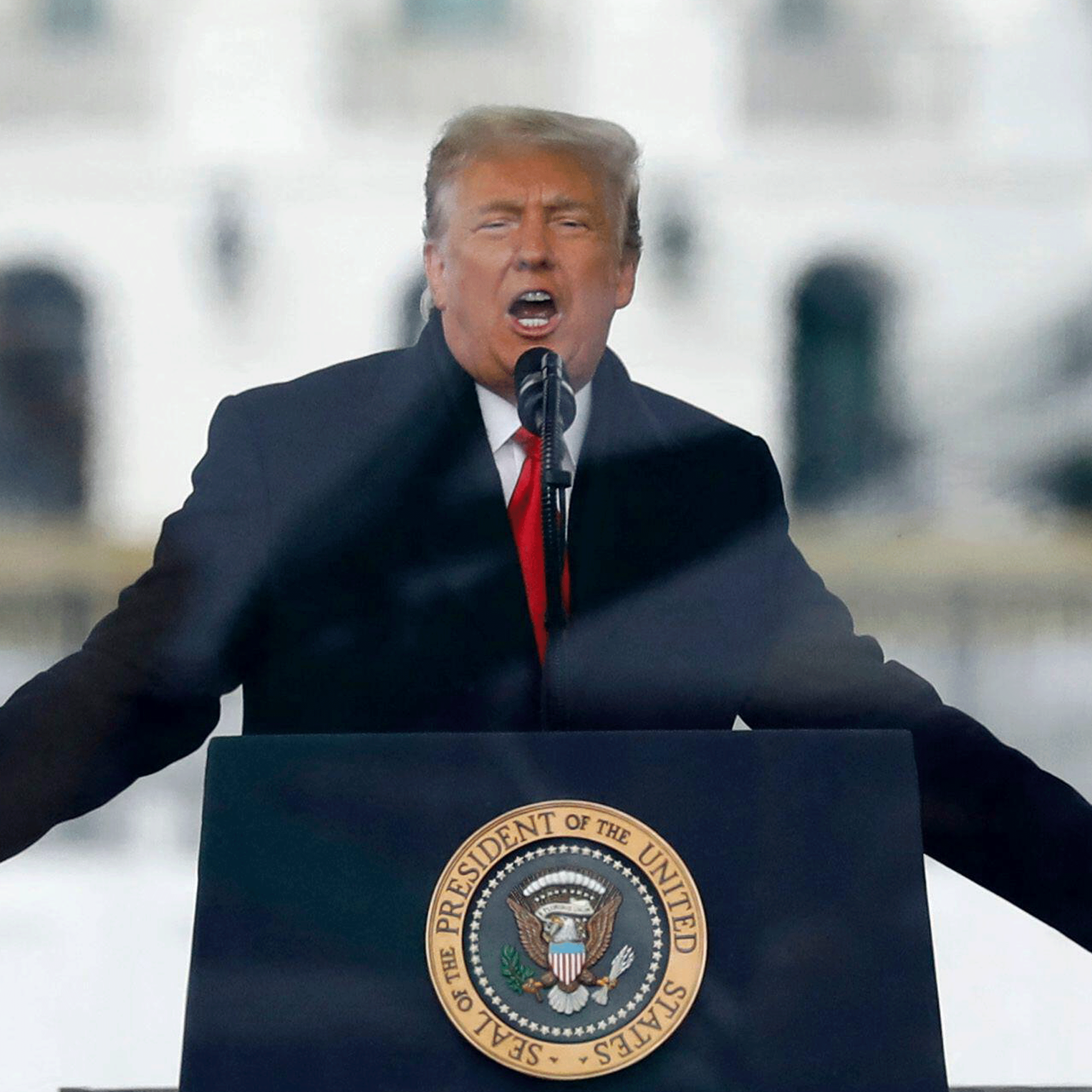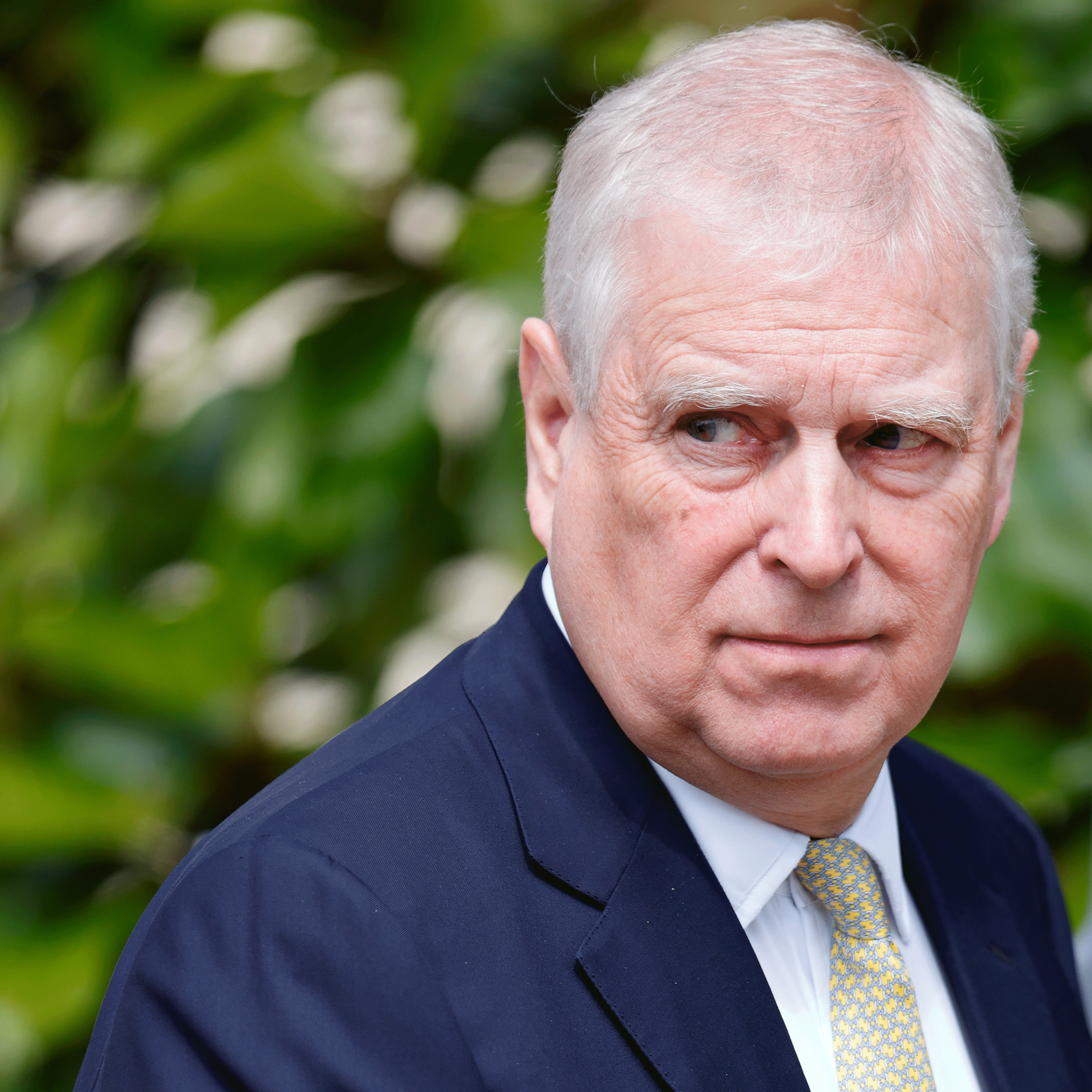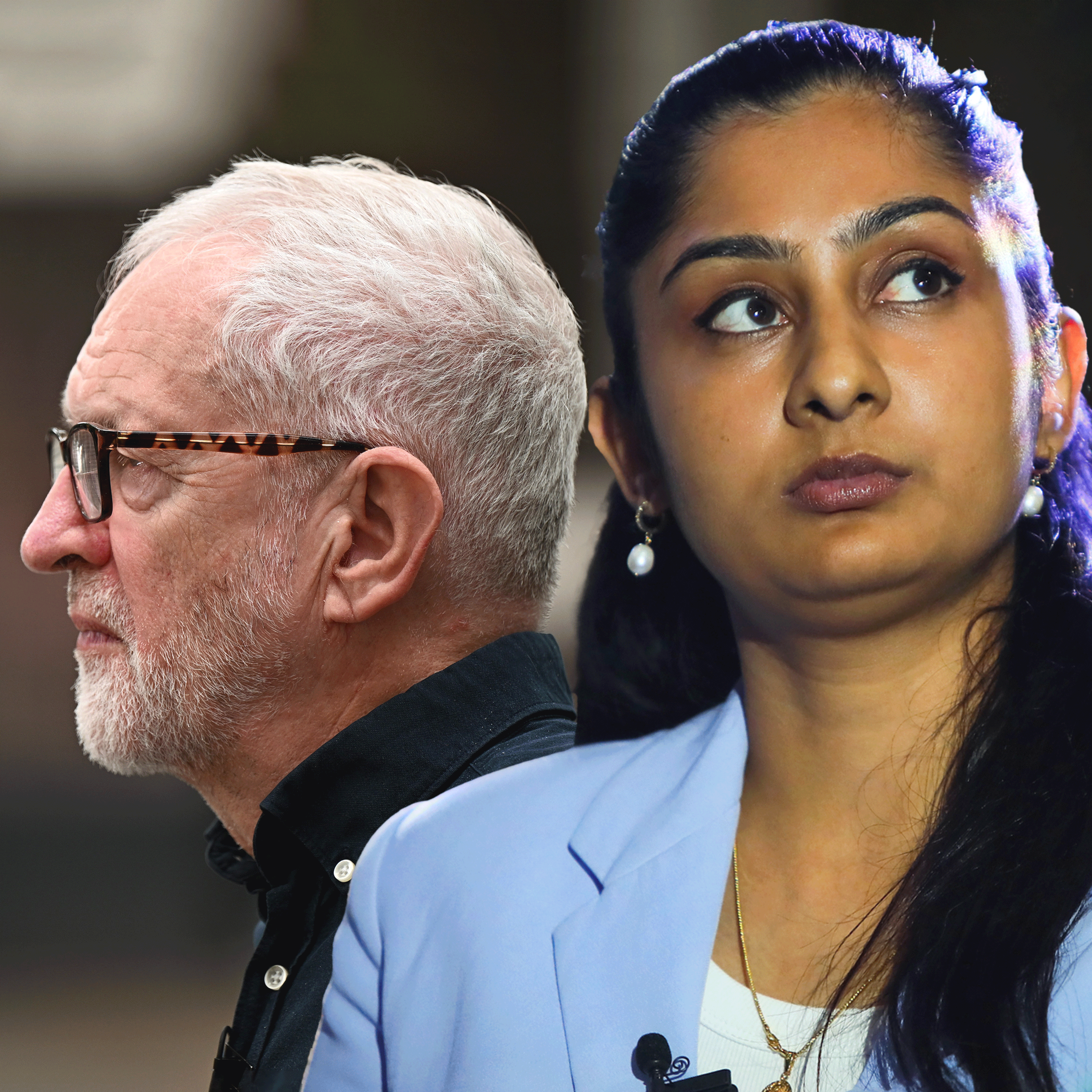144: Day 5: The Gaza Student Protest Crackdown
For six days Page 94 is covering the extraordinary stories of the investigative journalists shortlisted for this year’s Paul Foot Award, before the winner’s announcement next week.
Press play and read along
Transcript
Speaker 1 It's time to head back to school and forward to your future with Carrington College. For over 55 years, we've helped train the next generation of healthcare professionals.
Speaker 1 Apply now to get hands-on training from teachers with real-world experience. In as few as nine months, you could start making a difference in healthcare.
Speaker 1
Classes start soon in Pleasant Hill, San Leandro, and San Jose. Visit Carrington.edu to see what's next for you.
Visit Carrington.edu slash SCI for information on program outcomes.
Speaker 2 From Australia to San Francisco, Cullin Jewelry brings timeless craftsmanship and modern lab grown diamond engagement rings to the US.
Speaker 2 Explore solitaire, trilogy, halo and bezel settings or design a custom piece that tells your love story.
Speaker 2 With expert guidance, a lifetime warranty and a talented team of in-house jewels behind every piece, your perfect ring is made with meaning.
Speaker 2 Visit our Union Street showroom or explore the range at colinjewelry.com. Your ring your way.
Speaker 1 Page 94, The Private Eye Podcast.
Speaker 3 Hello, and welcome to part five of this year's Paul Foot Award miniseries. Let's find out who today's shortliste is.
Speaker 4
So I'm Erin Wallerwalker. I'm a reporter at Liberty Investigates.
I worked on this investigation with my editor, Harriet Clugston, and in partnership with The Metro, Guardian, and Sky News.
Speaker 4 Our investigation revealed what a teaching union described as a worsening crackdown on Gaza activism at UK universities, which included close collaboration with the police, use use of private intelligence companies, and a large number of disciplinary investigations against students and staff.
Speaker 3 So, how did this story first come to your attention?
Speaker 4 So, Liberty Investigates, our mission is to kind of plug gaps in UK media coverage in an area that we were looking to pivot into was threats to the rights of protesters.
Speaker 4 In April, May last year, Harriet and I were discussing the kind of shocking images that were coming out of the US of protesters being tear gassed, academics being handcuffed and tackled to the ground at the same time that the encampment movement was spreading to the UK.
Speaker 4 Harriet thought that we should be keeping an eye on this and I suggested that perhaps we could submit information requests to universities for their correspondence with the police and also dig into kind of disciplinaries that might be happening against students or referrals to the Prevent Extremism programme.
Speaker 3 Okay, that's a a very clever way of doing it through Freedom of Information requests for that specific correspondence.
Speaker 3 And what did those requests reveal?
Speaker 4 So we submitted them to all UK universities and and we hadn't really submitted these requests to universities before.
Speaker 4 A lot of our reporting to date was focusing primarily on police forces and the Home Office.
Speaker 4 And we found that they could generally be quite obstructive with the kind of information that we were requesting.
Speaker 3 Sorry.
Speaker 3 Yeah, yeah, of course.
Speaker 4 We hoped that universities might be a bit more kind of forthcoming, but it really varied from university to university.
Speaker 4 And with the first investigation, which we published last summer with the Metro, the kind of things that we found were quite close, kind of cozy, some would say, conversations between campus security teams and the police, police, the close monitoring of students' social media pages, and emails which kind of conveyed a tone of seeing students as threats rather than people that they have a duty to kind of look after, who are ultimately paying a large number of fees.
Speaker 3 And when you say the close scrutiny and monitoring of these students, is that being conducted by the police or by the campus authorities? Who's doing that?
Speaker 4 It's a combination.
Speaker 4 For instance, at the University of East Anglia, an email that we uncovered showed the police kind of flagging the flying of a Palestinian flag in the student union, which the police said that, while not an offence, it didn't look well on the establishment.
Speaker 4 So that was an instance of the police kind of flagging it to university.
Speaker 4 There are other instances where the university had identified something on social media and then flagged it to the police for advice, such as at Warwick University, where they were concerned about a talk by a Palestinian sort of youth group.
Speaker 4 So it's a combination.
Speaker 3 So I think one thing we should be clear about as well, because it sounds like you've done a lot of reporting on the restriction of liberty to protest.
Speaker 3 What are these protests that you've been describing? What are they consisting of? Are they, for example, violent protests where suddenly people's opinions of them might change a great deal?
Speaker 4 The protests that we focused on, particularly at sort of Newcastle University, they were described by witnesses as, especially at the beginning, being non-violent.
Speaker 4 They are disruptive in many instances. So, you know, it could be an encampment or an occupation of a building.
Speaker 4 And yeah, the demands of the protesters, generally, they're kind of calling for their universities to be transparent about what their kind of investments are with regards to involvement in the conflict in Israel and Gaza, to disclose those investments and ultimately kind of stop those investments.
Speaker 3 I think that's an important point to make, because I think people's views of protests really differ depending on what they consist of. But I think the
Speaker 3 you know the establishment of a a right to non-violent protest or to find out what your university has invested its money in will strike many people as quite reasonable.
Speaker 3 And the reaction of security authorities at these universities
Speaker 3 seems quite brisk, I would say. And And you covered a really interesting organisation called the Association of University Chief Security Officers, which I'd never heard of.
Speaker 3 And I'm sure a lot of listeners won't have heard of either. Can you tell us about them and their involvement in this story?
Speaker 4 The kind of first phase of our investigation, which we published with The Metro, an email that one university released kind of made us aware of this little-known organisation, which you described.
Speaker 4 We've been terming it Auxo. I'm not sure how best to pronounce that correctly.
Speaker 4 But it's a kind of professional body for campus security staff. Most of the kind of campus security teams from across the UK have signed up to it.
Speaker 4 And the emails that we uncovered showed this kind of forum where campus security teams were trading updates on encampments that had popped up on their university kind of campuses.
Speaker 4 Doing a little bit of digging, I noticed that the chairman of the organisation had posted on LinkedIn that he last summer went to the US to visit his kind of counterparts, the police chiefs there, as part of a conference, which I thought was quite curious, particularly
Speaker 4 because the response in the US was so clean, kind of tricky.
Speaker 3 Exactly. Yeah.
Speaker 4 So we thought, you know, how could we kind of find out a little bit more about what these discussions involved?
Speaker 4 And that informed the next phase of our investigation where we submitted another round of FOI requests to universities, specifically for correspondence shared with and via this organisation, which isn't actually subject to FOI itself because it's not a public body.
Speaker 4 But we sort of tried to get around that by going to the universities.
Speaker 4 And then that uncovered another sort of email that the chairman had sent to everyone, the kind of lessons learned from that conference that he attended.
Speaker 4 And that essentially was that US police chiefs were kind of bemoaning the reprimanding that they faced in response to their kind of draconian heavy-handed approach to protests across the pond.
Speaker 4 So that was last August and in anticipation of a kind of another wave of protest activity in the UK with the academic term starting.
Speaker 4 They were talking of kind of hosting joint workshops with US counterparts to kind of prepare for that and also promoting the use of a couple of private intelligence companies.
Speaker 4 One of them is called Data Miner which has been used to monitor George Floyd protesters in the US and another company known as Horus.
Speaker 3 That feels like quite a big step for British universities to be taking in terms of active monitoring of their students.
Speaker 4 It's a really sort of concerning development which I think many would think would have a chilling effect on individuals and expressing themselves freely.
Speaker 3 There have been lots of real world consequences. There have been lots of disciplinary procedures and so on for students as a result of all this haven't there
Speaker 4 yes the data that we uncovered showed that between october 2023 and august 2024 28 universities had launched disciplinary investigations against as many as 113 staff and students
Speaker 4 the data that we've got back um is somewhat incomplete in terms of the very the granular detail of that a lot of universities wouldn't necessarily provide very specific reasons because they said that could identify individuals involved.
Speaker 4 But we spoke to individual students and there's definitely concerns as to whether these disciplinary investigations, which can go on for months, are proportionate.
Speaker 4 In one instance, a student was subject to months of investigation for attending unauthorised protests. That was at Leeds.
Speaker 4 At Newcastle, another protester was disciplined over a chant, which a senior member of staff took offence to.
Speaker 4 They were ultimately exonerated, but they were subject to a kind of several months-long investigation.
Speaker 3 Where do you think the story goes next? Does it depend what the protest movement in particular does next? Or is it more about how Auxo and et al. are going to respond?
Speaker 4 In terms of where the story goes next, so we're very much still looking into this issue. So I'm not sure how much to say here.
Speaker 3 No, fair enough. No spoilers.
Speaker 4 But you'll send off a huge number of FOI requests and receive loads of documents back, and you might uncover kind of without expecting to, a particular element which forms a new kind of like lead.
Speaker 4 And so, yeah, some material that we got back from the kind of latest round of FOIs has kind of prompted us to dig into another kind of lead a bit bit more systematically. And so, yeah,
Speaker 4 we'll have to result out soon, I'm sure.
Speaker 3 Were there legal challenges along the way? I mean, did any of the universities you were writing to, did they prove seriously obstructive? Did they say this is none of your business, basically?
Speaker 4 Yes, certain universities being quite obstructive with releasing information under the FOI Act.
Speaker 4 And that kind of prompted us to kind of do a bit of reflection as well.
Speaker 4 I think the universities that we focused on, particularly in our first story, who I guess we sort of shamed in a way because they'd kind of been transparent about the the ways in which they'd restricted protest.
Speaker 4 Other universities, such as Oxford, for example, which has been kind of regularly citing the law enforcement exemption to sort of prevent disclosure of any of the kind of material that we'd requested.
Speaker 3 So, we should say there are various exemptions to freedom of information requests. One is there one about commercially sensitive information, and there's one about implications for law enforcement.
Speaker 3 If this has effects on police activity, then actually they don't have to tell you anything.
Speaker 4 Precisely, yeah. So, that's the most commonly cited sort of exemption, as well as the health and safety exemption.
Speaker 4 A number of universities have seen fit to disclose a lot of the material that we asked for, but just redact those sort of like particularly sensitive details, which they can demonstrate will have some sort of causal negative impact on law enforcement.
Speaker 4 But other universities, where there's been notable concerning sort of treatment of protesters, they've just kind of issued blanket refusals and not released anything.
Speaker 4 And in a way, they didn't receive very much kind of focus in our initial piece because they didn't release much information.
Speaker 4 And so we kind of addressed that with our partner Sky News in the sort of story that we published last February by producing a table.
Speaker 4 They produced a table where students or anyone, readers, can go in and look up every university that we FOI'd and see how they responded in a way kind of holding to account those who are less transparent.
Speaker 3 Because otherwise, they just don't appear in the story.
Speaker 3 Is this part of a broader chill across protests in the UK? Because there have been lots of legal changes to the ways in which protesters can be arrested or even imprisoned,
Speaker 3 things like the Just Stop Oil protest, protest, that kind of thing.
Speaker 4 Yeah, I think although we haven't seen in the examples that we're looking at on university campuses, use of the laws that have been passed under the former government, and which, yeah, they're kind of the current government is still kind of plowing ahead with.
Speaker 4 I'm sure that it's kind of setting the mood music to influencing universities in their approach towards protest.
Speaker 4 And at least amongst a number of universities that featured in our report, rather than seeing it as something that they have a duty to facilitate, which is sort of part and parcel of young people going to university and kind of exploring their political views and taking part in protest activity, perhaps more seeing it as a nuisance, which
Speaker 4 they're more inclined to have a kind of knee-jerk reaction to and try and put a stop to.
Speaker 3
Well, it's a terrific story, and I'm sure there'll be plenty more from Liberty Investigators on it. So, congratulations again, Aaron.
Thank you so much.
Speaker 3
Thanks again to Aaron. A really interesting story there.
We will be back again tomorrow with our final shortlist D. See you then.
Speaker 5 Dreaming of buying your first car or new home? Knowing your FICO score is the first step to making it real. With MyFICO, you can check your score for free and it won't hurt your credit.
Speaker 5 You'll get your FICO score, full credit reports, and real-time alerts all in one simple app. Your credit score is more than just numbers.
Speaker 5 It's the key to building the future you've been working toward. Visit myfICO.com slash free or download the MyFICO app and take the mystery out of your FICO score.
Speaker 6 From Australia to San Francisco, Cullen Jewelry brings timeless craftsmanship and modern lab-grown diamond engagement rings to the U.S.
Speaker 6 Explore Solitaire, trilogy, halo, and bezel settings, or design a custom ring that tells your love story.
Speaker 6 With expert guidance, a lifetime warranty, and a talented team of in-house jewelers behind every piece, your perfect ring is made with meaning.
Speaker 6 Visit our new Union Street showroom or explore the range at cullenjewelry.com. Your ring, your way.





